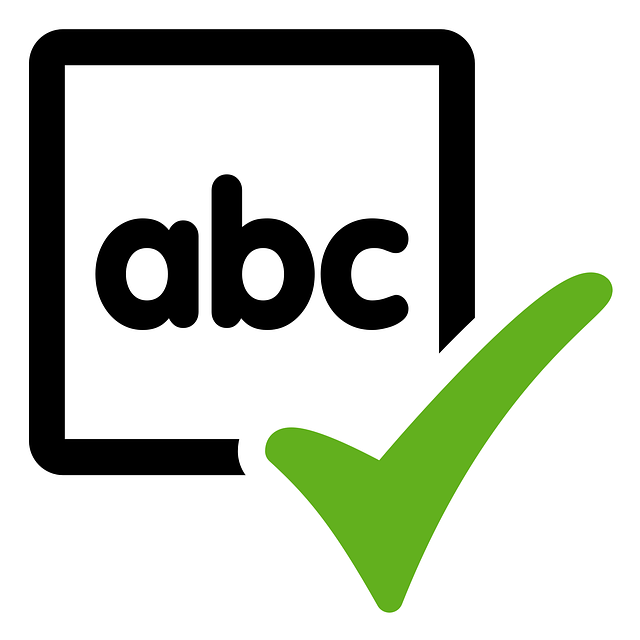Real estate industry compliance is paramount for maintaining integrity, preventing fraud, and building trust. Background checks, ranging from financial history to criminal records, are essential tools for verifying identities and mitigating risks. These screenings ensure regulatory adherence, safeguard consumer interests, and foster ethical practices among professionals. Adopting digital solutions and streamlined processes enhances accuracy and efficiency in a dynamic market with evolving regulations, contributing to a robust and transparent real estate sector.
In the dynamic real estate industry, regulatory compliance is non-negotiable. Effective background checks play a pivotal role in upholding integrity and safeguarding transactions. This article delves into the significance of real estate background checks, exploring key aspects such as understanding their scope, navigating regulatory demands, and implementing robust investigation processes. We’ll also address common challenges and best practices to streamline verification, ensuring compliance remains a cornerstone of the industry.
- Understanding Real Estate Background Checks
- Regulatory Compliance: Why It Matters in the Industry
- The Role of Thorough Background Investigations
- Common Challenges in Ensuring Compliance
- Best Practices for Streamlining Verification Processes
Understanding Real Estate Background Checks

Real estate background checks play a pivotal role in maintaining regulatory compliance within the dynamic real estate industry. These comprehensive screenings go beyond traditional credit checks, delving into an individual’s financial history, criminal record, and potential red flags that could impact their integrity as a property owner or manager. By conducting thorough background investigations, real estate professionals can mitigate risks, protect their investments, and ensure they operate within the legal framework governing the sector.
Compliance is not just about avoiding penalties; it fosters trust among clients and stakeholders. A robust background check process helps identify individuals with a history of fraud, money laundering, or other illicit activities, ensuring that properties are in safe hands. This, in turn, enhances the overall reputation of the real estate industry, promoting fairness and transparency in transactions.
Regulatory Compliance: Why It Matters in the Industry

In the dynamic and highly regulated real estate industry, regulatory compliance is paramount for maintaining integrity, transparency, and stability. Adhering to laws and guidelines ensures fair practices among agents, brokers, and developers, safeguarding consumers’ interests and promoting a robust market. Non-compliance can lead to severe consequences, including legal penalties, reputational damage, and loss of client trust.
Real estate transactions often involve significant financial commitments, making them vulnerable to fraud, corruption, or illegal activities. Stringent compliance measures act as a deterrent, fostering an environment where ethical conduct is the norm. By implementing robust background checks, verifying licenses, and staying updated on regulatory changes, industry professionals can navigate complex legal landscapes confidently, ensuring their operations remain compliant and sustainable.
The Role of Thorough Background Investigations

In the real estate industry, maintaining regulatory compliance is paramount for both agents and clients. This is where thorough background investigations play a pivotal role. By conducting comprehensive checks on potential buyers, sellers, and even service providers, real estate professionals can mitigate risks associated with fraud, identity theft, and other illegal activities. These investigations ensure that all parties involved are legitimate and help build trust in the market.
Moreover, rigorous background checks contribute to the overall integrity of the real estate industry by preventing unethical practices. They verify identities, financial histories, and employment records, among other factors, ensuring that transactions are conducted fairly and transparently. This due diligence not only protects the interests of individual agents and clients but also reinforces public confidence in the sector, fostering a more robust and stable real estate market.
Common Challenges in Ensuring Compliance

In the dynamic and highly regulated real estate industry, ensuring compliance is no mere formality but a critical aspect that demands meticulous attention. Common challenges include keeping up with evolving regulations, which can vary significantly across regions and property types. Brokers and agents often struggle to stay informed about changing laws affecting everything from zoning restrictions to fair housing practices. Additionally, the rapid pace of transactions creates a time crunch, leaving little room for in-depth compliance checks.
Another hurdle is verifying tenant and buyer information accurately and consistently. Background checks play a pivotal role in mitigating risks associated with fraudulent activities like identity theft or false employment verification. However, ensuring these checks are comprehensive and reliable across the entire real estate lifecycle can be daunting due to data privacy concerns and the sheer volume of transactions.
Best Practices for Streamlining Verification Processes

In the fast-paced real estate industry, streamlining verification processes is key to maintaining regulatory compliance and efficiency. Best practices involve adopting digital solutions for document management and data validation, which not only speed up the checking process but also reduce errors. Implementing automated systems for identity verification, financial background checks, and previous property ownership investigations can significantly enhance accuracy and timeliness.
Additionally, establishing clear communication channels between stakeholders—including clients, real estate agents, and regulatory bodies—is vital. Standardized procedures for documentation submission and status updates ensure everyone is on the same page, fostering transparency and accountability throughout the verification process. Regular reviews of these practices are also beneficial to adapt to evolving regulations and technological advancements in the real estate industry compliance landscape.






